What Biden's health care priorities should be, according to experts
Health care policy in the early days of the Biden administration has largely involved combating the coronavirus pandemic and organizing the nationwide vaccination rollout.
President Biden has issued several COVID-related executive orders including mandating mask wearing on public transit, mandatory COVID-19 testing for all international travelers entering the country, expanding the U.S. coronavirus testing capacity, and the creation of a special enrollment period for Americans to sign up for health care under the Affordable Care Act (ACA), also known as Obamacare.
Yahoo Finance spoke to several public health experts to learn what the Biden administration’s health care priorities should be over the next few months.

‘We need to message the importance of getting the vaccine’
Experts whom Yahoo Finance spoke with stressed the need for a nationally coordinated response to the pandemic that includes consistent messaging coming from the administration in the form of daily briefings and various announcements regarding the latest developments amid the pandemic.
“It’s been encouraging to see a more direct and clearer messaging coming out of the administration and a return to more frequent public briefings and the CDC being out in front of recommendations,” Dr. Brian Garibaldi, medical director of Johns Hopkins Biocontainment Unit,told Yahoo Finance, “and trying to have more of a clear message that masking is important, social distancing is important, that we need to message the importance of getting the vaccine out there and convincing people that this is a real threat and that the vaccines are safe and that we need to be doing our best to get them out to people who need them. I am encouraged by that.”
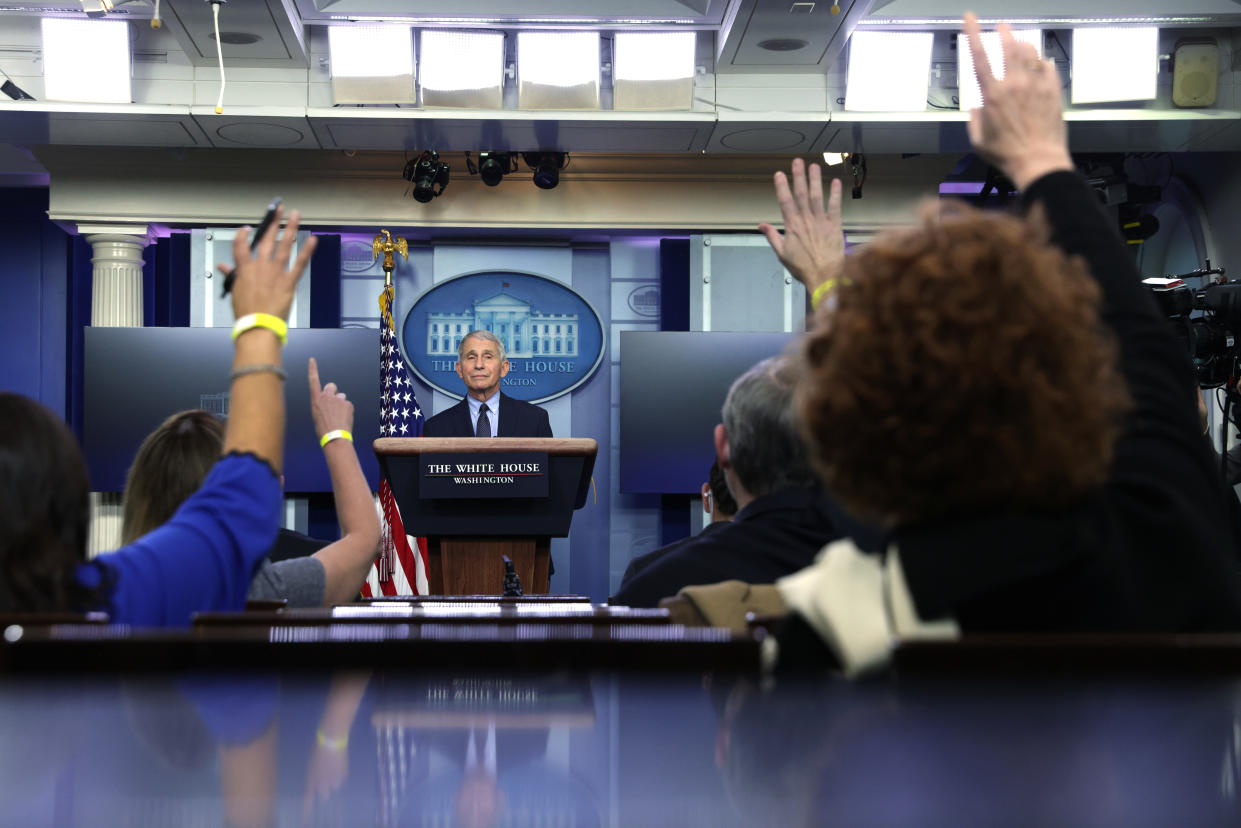
Along with consistent messaging, there should be a national strategy on the vaccination response and infection control, according to Dr. Dara Kass, an emergency medicine physician at Columbia University. This includes things like testing, looking into reopening schools, and deciding on the metrics to be used for reopening restaurants and indoor dining.
“We need the Biden administration to tell people how to open their community safely and decrease the spread of this virus while we also expand access to the vaccine and make sure that’s centralized,” she told Yahoo Finance.
Optimizing the vaccine rollout
The vaccine rollout didn’t start off well in the U.S., with the country falling short of its goal of having 20 million peopleinoculated by the end of 2020.
Since then, however, the number of vaccines administered surpassed the total number of confirmed COVID-19 cases in the U.S. There are currently more than 27.1 million Americans who have received at least one dose of a vaccine.

“It will likely take at least another month before we see significant progress with respect to vaccine distribution efforts,” Dr. Anand Parekh, chief medical advisor at the Bipartisan Policy Center,told Yahoo Finance. “Time is necessary for vaccine distribution funds from the December COVID-19 package to reach the front lines, for the administration to get a full handle on supply, for communication to be optimized between federal/state/local levels, as well as for adequately staffed vaccination sites to be up and running.”
Pfizer (PFE) and Moderna (MRNA) were the first two companies to receive emergency use authorization for their COVID-19 vaccines, and Johnson & Johnson (JNJ) isn’t far behind. The problem has been manufacturing enough vaccines needed and ensuring that they are stored properly.
“What we’re seeing right now is roughly 50% of doses that have been delivered to the states are getting into arms,” Dr. Howard Forman, professor of public health at Yale University, told Yahoo Finance. “Part of the problem is that states and municipalities and health systems are holding back doses because they don’t have confidence in what’s coming next Monday. They’re afraid of using up every last dose over the weekend because they already have people scheduled for Monday and Tuesday, and they don’t know whether doses will be delivered on time and so on.”
That results in “a lot of vaccination centers you hear about throwing away a low number of doses every evening or every day,” Forman added. “That should never be happening. We should be using every last dose as efficiently and effectively as we possibly can.”

The goal, he said, should be to get to administering 2 million shots a day.
“We need to get to a point where health systems have 100% confidence in the same way we have confidence in Federal Express — if it actually has to be there the next day, it’ll be there,” Forman added. “We have to get to the point that people are using up their doses as fast as possible. We shouldn’t be reserving the second dose for next week when we should be administering it this week. And knowing if we have to cancel anything next week, cancel some first doses next week so we can give second doses.”
Another important aspect of the vaccine rollout is ensuring that it’s done in an equitable manner. The data shows that this isn’t happening: According to CDC data, only 5.4% of vaccines have gone to Black Americans and 11.5% of vaccines have been given to Latino Americans despite these demographics being hit particularly hard during the pandemic.
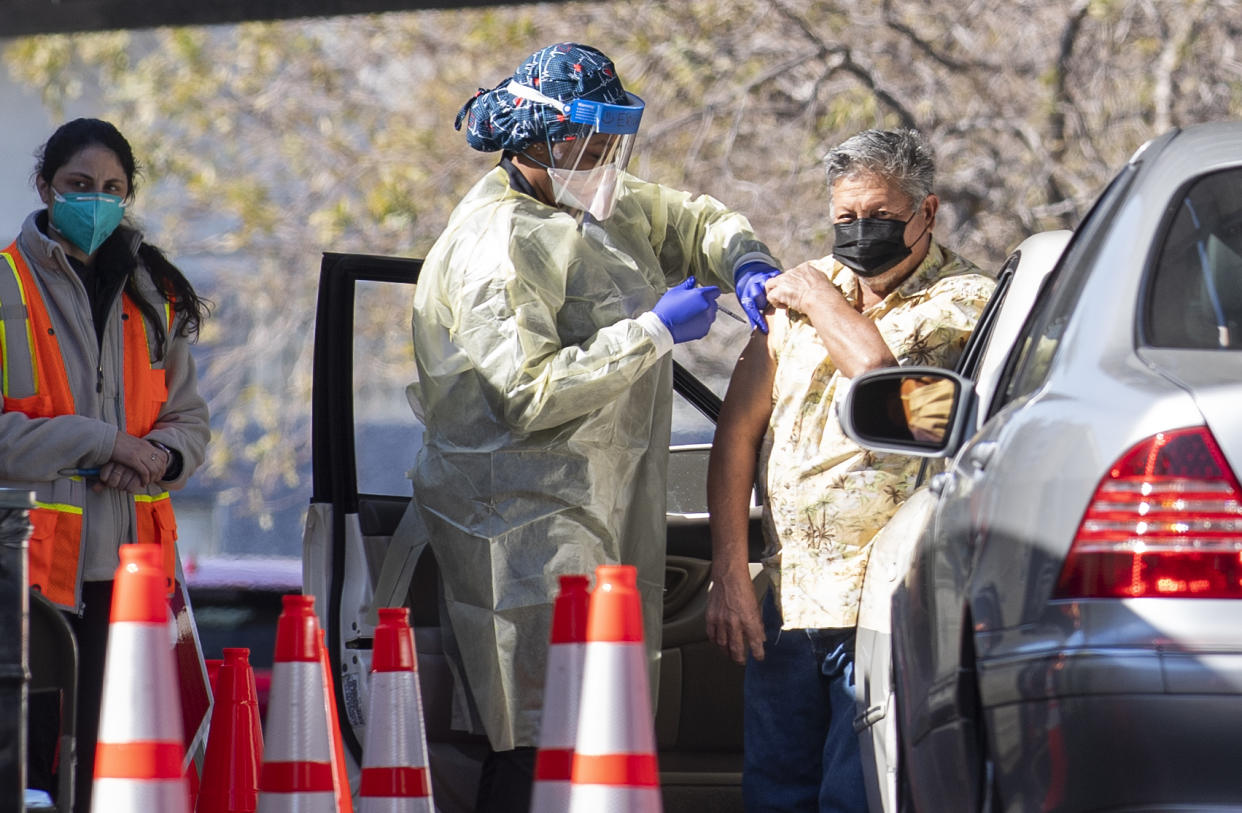
“When I say fair and equitable,” Garibaldi explained, “I think it’s important to be thinking about that in terms of the United States, making sure that populations, just as we prioritize vaccines for people who we think are at highest risk for severe disease and death, like older people, people with comorbid conditions, we also need to recognize the burden that underrepresented minorities have shouldered in terms of their risk for infection that continues and making sure that we’re prioritizing those communities that have a high burden of COVID disease, but to date haven’t actually had the same representation on the list who were vaccinated.”
Forman stressed that this thinking applies to low-income workers as well: “It has to be an absolute priority to be able to give low-wage workers extra sick days, and that you can’t count on small businesses to do that. You really have to count on the federal government to finance that one way or the other, and there are a lot of ways to do it. But the ultimate goal is to make sure low-wage workers aren’t penalized for getting vaccinated.”
Companies like Dollar Tree (DG) have offered paid time off for employees getting vaccinated. The dollar store chain is paying the equivalent of four hours of wages to any of its 157,000 employees who get vaccinated, and will provide paid time off to any of them who suffer a severe reaction to the vaccine. But not every company has been as generous.
“I’ve talked to any number of low-wage workers in my hospital and they all tell me that they just can’t afford to give up the day of work and for them in their 20s, 30s, and early 40s, they may be susceptible but they don’t see themselves as susceptible to the ill effects of COVID, but they clearly see themselves as susceptible to losing a day of work due to a vaccine,” Forman said. “While high-income people can afford to either take the day off or have the latitude to take a more flexible day, low-wage, lower-income workers do not.”

Expanding access to health care
Outside of the COVID-19 response, there are other health care issues that President Biden should address, according to Parekh.
“Many Americans have lost health insurance coverage or have found themselves in a much more precarious situation with respect to coverage due to the pandemic,” Parekh said. “It’s important that the Biden administration has announced opening up a special enrollment period for the health insurance marketplaces as well as expanding outreach to Americans. Progress here will be important.”
Biden signed an executive order on Jan. 28 opening a special enrollment period for Americans beginning on Feb. 15 and lasting through May 15. This allows uninsured Americans to sign up for health care coverage through the Obamacare marketplace.

Dr. Kass said it should go even further than that — build a public option and decouple access to health care from employment.
“We can still let people keep their insurance if they’re employed and have private insurance,” Kass said. “There’s no reason to undo what’s working, but for all those people who lost their health care in the pandemic, it’s time to build a system now that gives them health care access as we come out of this pandemic for a lot of things that have been ignored, for the effects of the virus that people are having prolonged post-infection, and for a health care system that’s more equitable and available to people.”
Forman noted that areas of Medicaid can be significantly improved. Currently, there are 12states that have not expanded Medicaid. In some states, there are also work requirements put in place for people to be able to stay on Medicaid, despite the fact that a majority of the enrollees are either elderly or suffering from some kind of disability.
“We should be getting people on Medicaid who are eligible for Medicaid, and we should go back to encouraging the states to enroll in Medicaid,” he said. “We should learn from the work requirements not being an effective strategy to try to dissuade stats from using work requirements.”

Addressing health care inequities
These issues intersect amid inequities in the U.S. health care system, particularly since low-income Americans make up a large share of front line workers who have been exposed to the virus.
The country needs to “make sure that the systemic inequities around health care and that’s how the interface of access to care — health care deserts, reproductive justice, all of the intricacies of what was an inequitable and unjust system so as we build and invest, we have to make sure that we address those issues from the ground up,” Kass said.
That approach should go outside the U.S. as well, according to Garibaldi.
“As we’ve seen these variants pop up across the world, and now certainly there are some here in the United States, this will continue to be a problem until the entire world is vaccinated,” he said. “While the focus has been on making sure the U.S. population is vaccinated, there needs to be a similar focus and a return of the United States international arena to make sure that we’re thinking about ways of helping other countries get vaccinated as well because as long as there are hotspots of COVID transmission, we’re all at risk for new variants emerging and for those variants to potentially invade the protection that we’ve spent months building up in terms of herd immunity and protecting populations.”
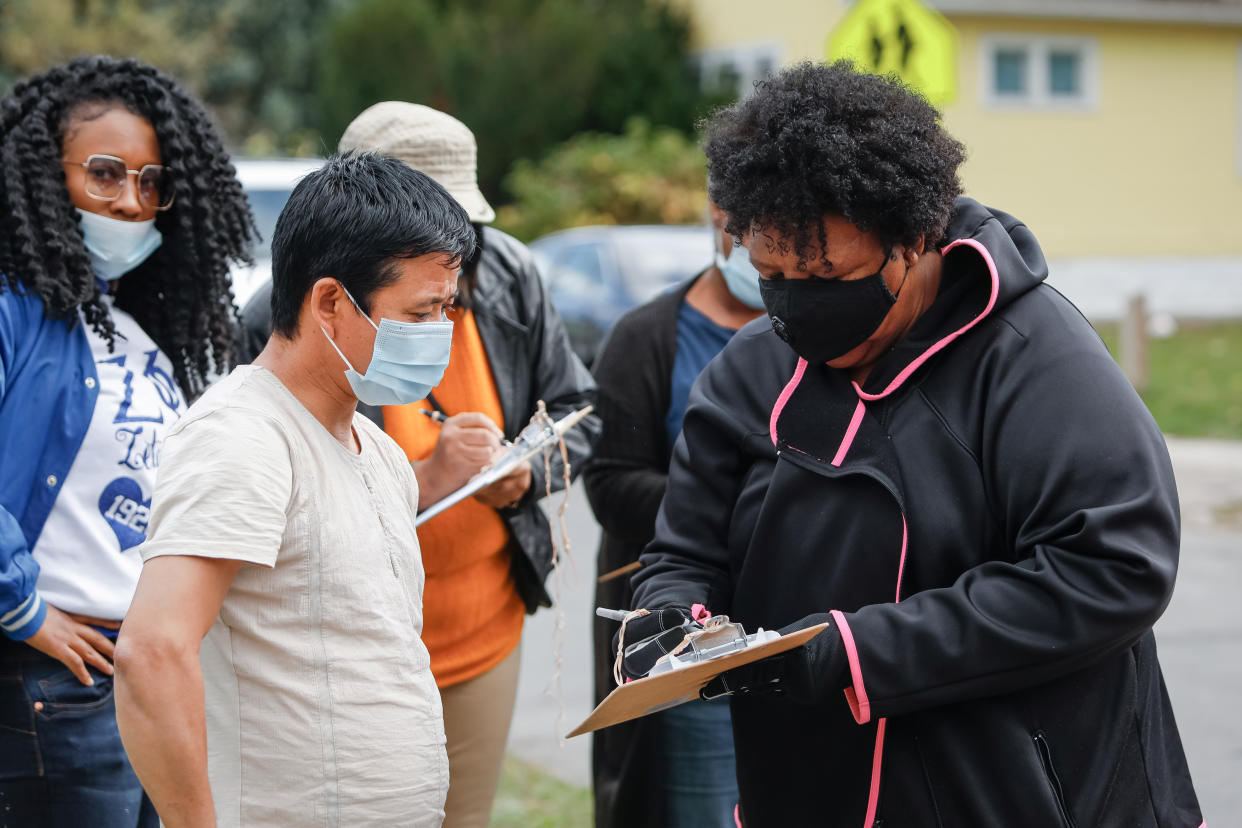
Organizations like The Bill and Melinda Gates Foundationhave committed to ensuring that vaccines are provided to developing countries.
Garibaldi also stressed that the Biden administration should focus on climate change, as the environment plays a major role in the public health domain.
“We’ve seen the impact of global warming on climate throughout the world,” Garibaldi said. “We’re seeing humans coming into contact with zoonotic diseases in ways and rates we haven’t seen previously. A lot of that can be due to changing habitats and us encroaching on the environment.”
He continued: “As we’re looking at dealing with COVID, we have to recognize that if we don’t deal with the urgency of climate change, this is just going to be the tip of the iceberg in terms of the types of public health treats we’re going to face, both in terms of natural disasters and infectious diseases.”
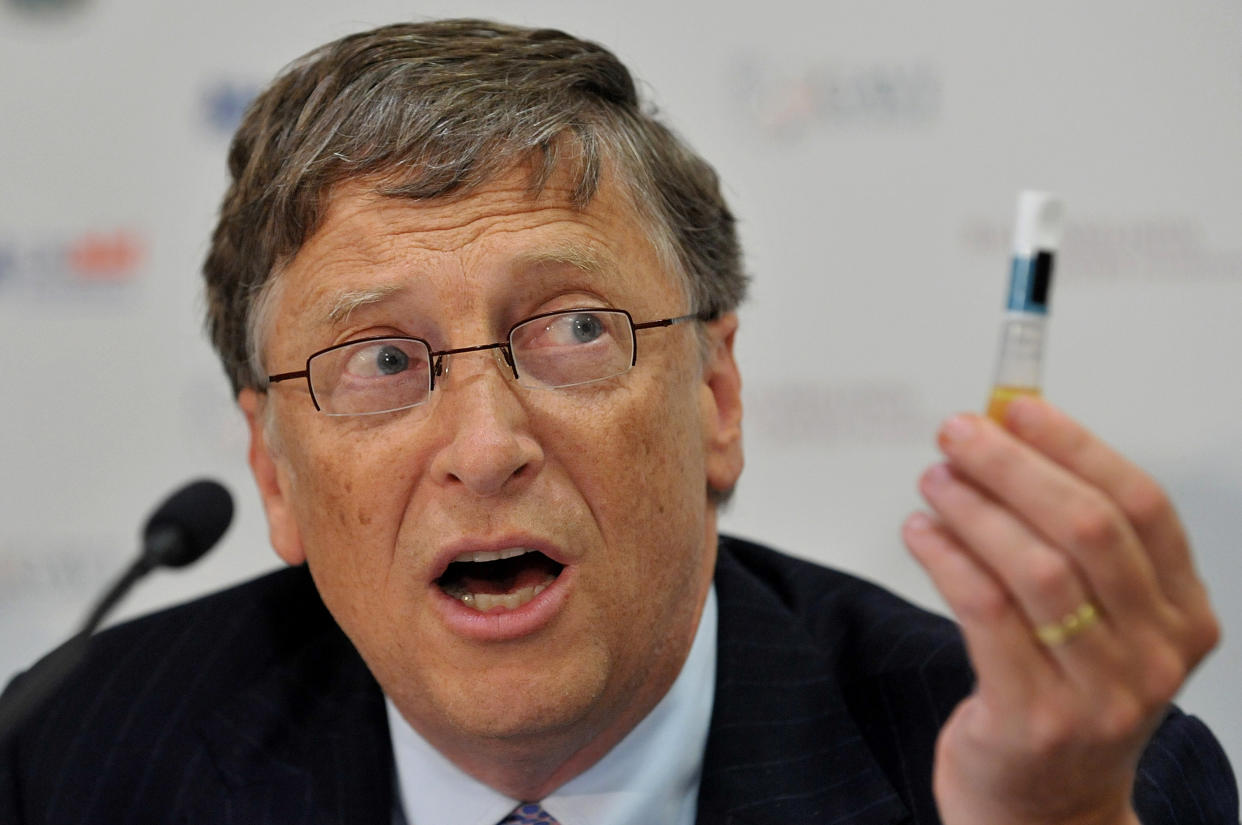
Behavioral health issues
Mental health has taken a major hit as a result of the pandemic.
A 2020 survey from the CDC of 5,412 Americans found that 25.5% of respondents between the ages of 18 and 24 reported having seriously considered suicide in the previous 30 days while over 40% of respondents reported at least one adverse mental or behavioral health condition as a result of the coronavirus.
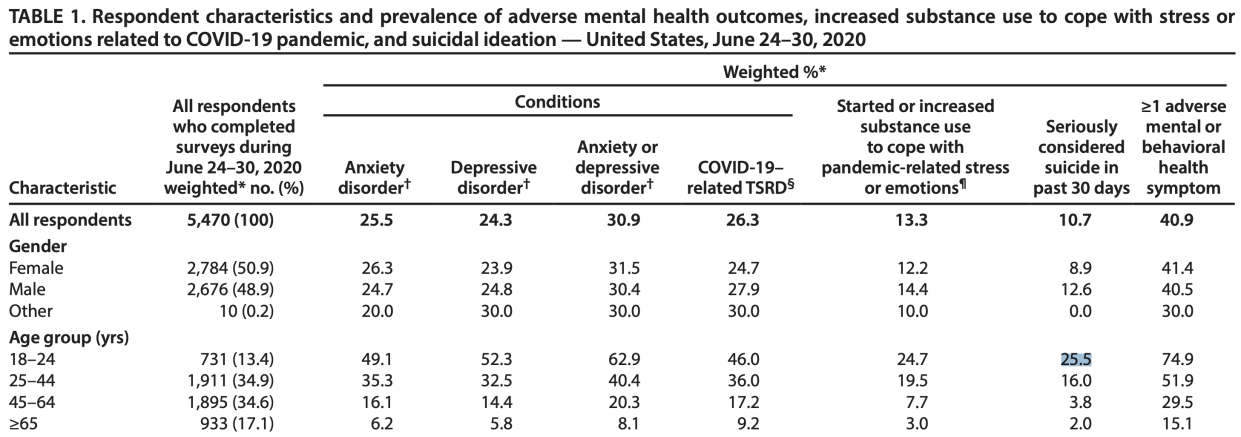
Substance use is also up significantly: CDC data revealed that a record 81,000 drug overdose deaths occurred in the U.S. in the 12-month period ending in May 2020.
“The pandemic’s impact on the ongoing substance use disorder epidemic and mental health crisis has been very concerning,” Parekh said. “The Biden administration needs to quickly gain an understanding about recently appropriated congressional dollars to address these crises in the context of the pandemic and how to best distribute these resources to help vulnerable Americans.”
Adriana is a reporter and editor covering politics and health care policy for Yahoo Finance. Follow her on Twitter @adrianambells.
READ MORE:
Here's how Biden's rescue plan expands affordable health care
Biden executive order opens new Obamacare ‘Special Enrollment Period’
New data on Americans crowdfunding medical expenses shows 'how bad the situation is'
Read the latest financial and business news from Yahoo Finance
Follow Yahoo Finance on Twitter, Facebook, Instagram, Flipboard, SmartNews, LinkedIn, YouTube, and reddit.
